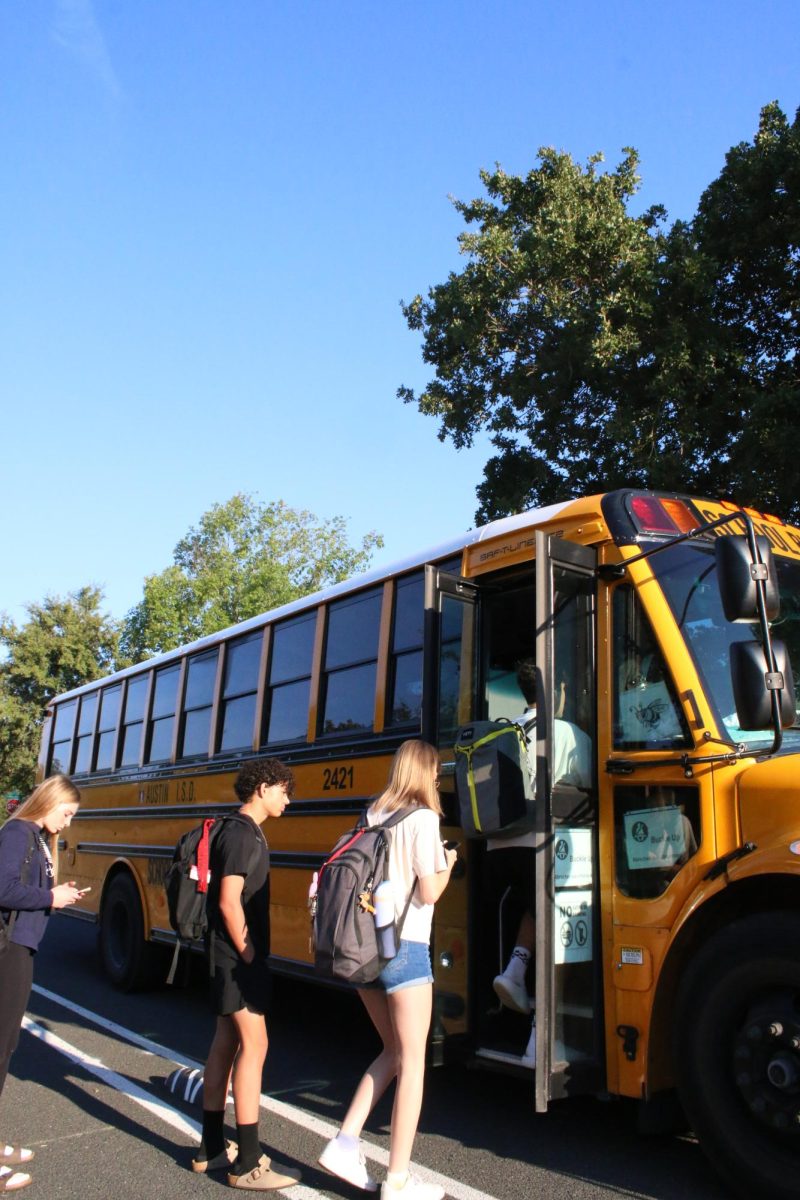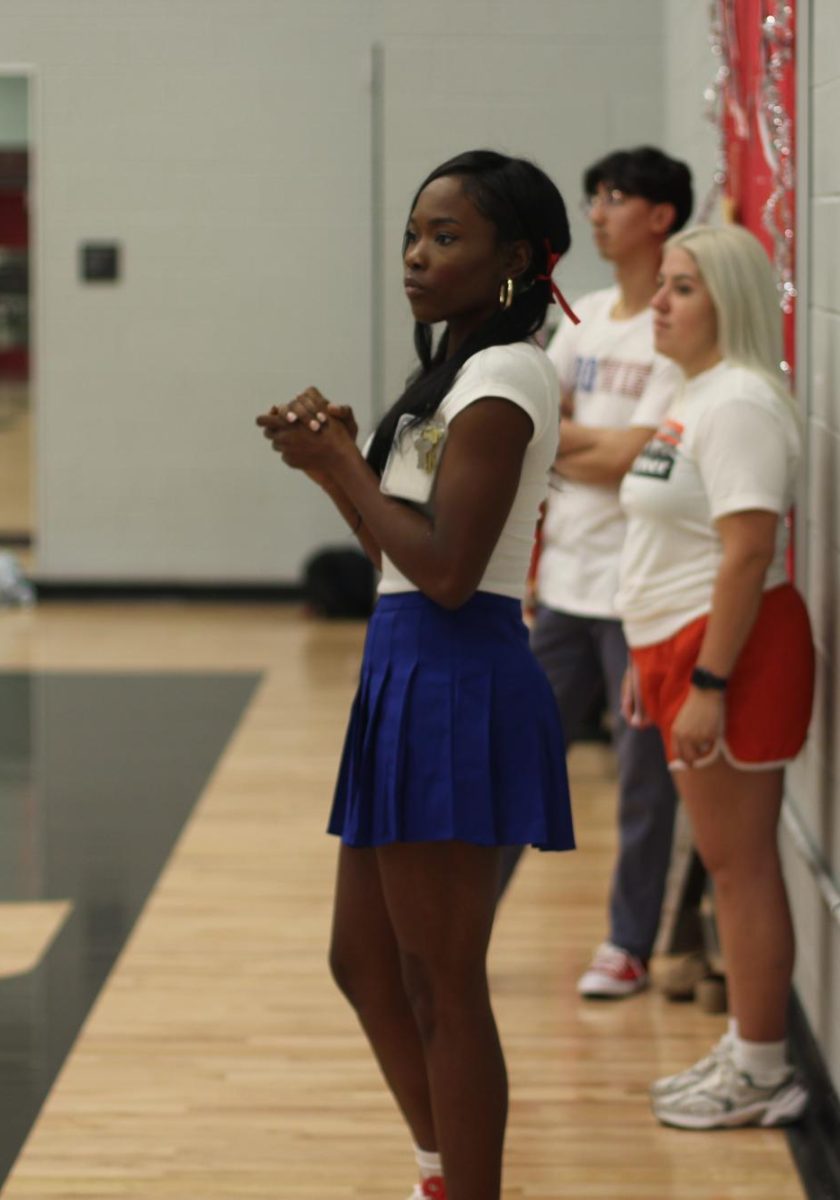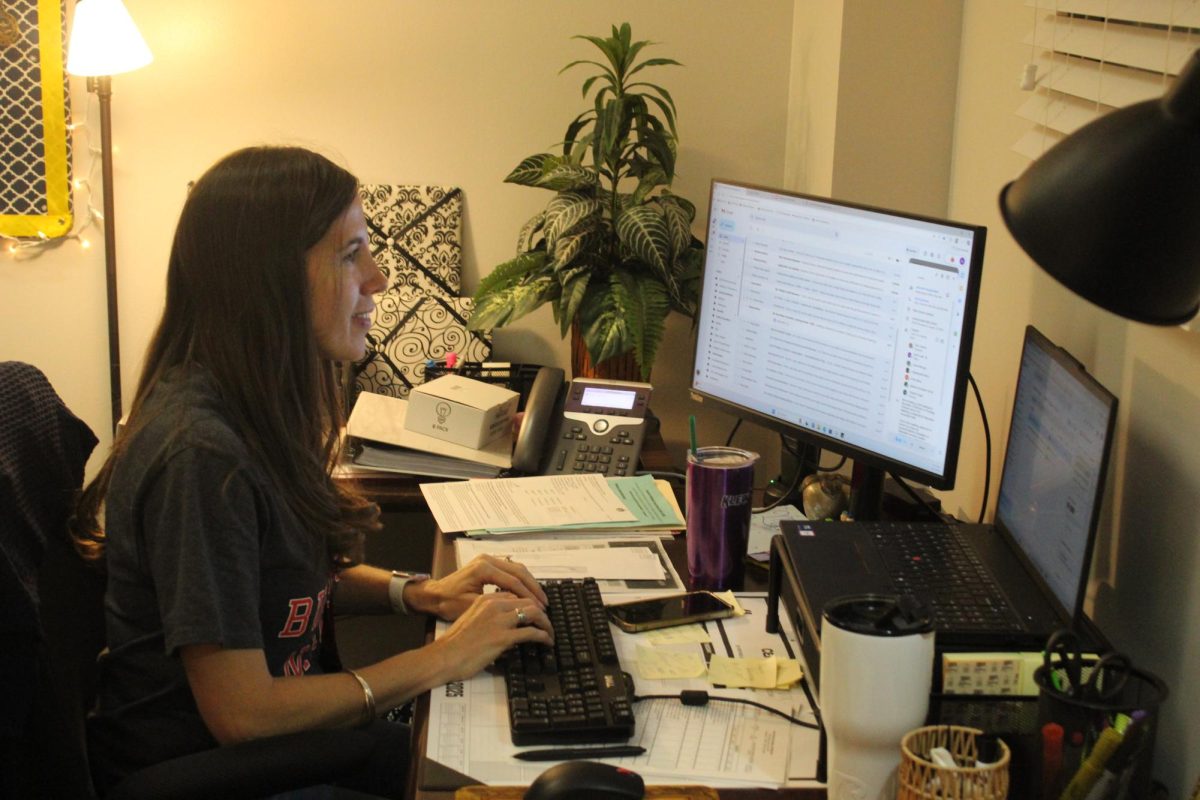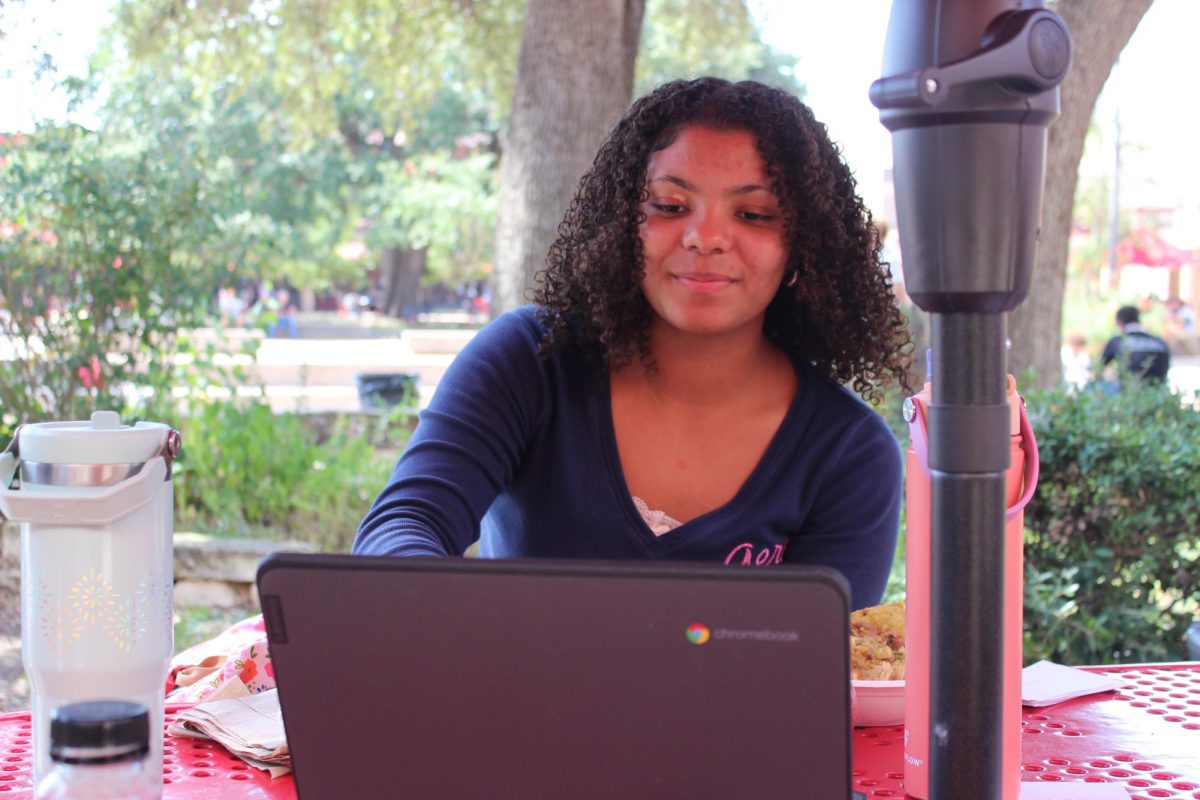Senior Marley Hall visited the voting polls with her parents long before she was eligible to vote. So, when it finally came time for her to cast her very first vote in the 2024 Presidential Primary Election, she was overjoyed to be voting alongside her family.
The 2024 Presidential Primary election early voting began in Texas on Feb. 20, 2024, and continued until March 1, 2024. Election day voting occurred on March 3, 2024, and eligible voters were able to choose which day they voted.
“It was my first time voting and I voted with my parents on election day,” Hall said. “My mom has a tradition where she does a mid-jump photo each time one of her kids votes for the first time. So, when it was my older sisters’ first time voting they did a photo jumping in the air with their ‘I voted stickers,’ and I got to take my photo this time.”
According to the Texas Secretary of State, in the state of Texas, an individual is eligible to register to vote if they are a United States citizen and will be 18 or older on or before the next election day. Eligible voters must register to vote within 30 days before the future election. Because Texas lacks an automatic voter registration system, some eligible voters are hesitant to register, despite the fairly simple process.
“When my students turn 18 I always give them a voter registration card for their birthday,” economics teacher Ruth Narvaiz said. “I also tell my students that they can register at the Texas Department of Public Safety (DPS) when they go in to renew their license.”
In addition to registering through the DPS, eligible individuals can visit VoteTexas.gov to fill out a voting registration application. They will then be mailed a voter registration card, and the future voter will simply need to mail that card back once their information has been filled out.
“My parents helped me register before I turned 18, so that, when it came time for me to vote, it would be seamless,” Hall said. “They helped me register to vote when I renewed my license online.”
According to Common Cause Texas, it is not unheard of for Texas voters to face complications during their voting experience. In the 2022 election, Texans faced paper shortages, long lines, and poll booth opening delays. Despite these possibilities, senior Serena Hinahon believes that the majority of voters’ experiences will be similar to theirs – effortless and fun.
“Voting for the first time was super easy and was a very positive experience,” Hinahon said. “I went with my older brother and there were so many elderly poll workers who were helping with the voting process, and when I told them it was my first time voting they started cheering and clapping for me.”
While there are a few obstacles that Texas voters face on election day, history teacher Dalton Pool believes there are ways to limit these anxieties so that an individual can enjoy their voting experience.
“I think the biggest obstacle is lack of knowledge of candidates or propositions on the ballot,” Pool said. “It can be intimidating to vote, especially if you only know a few of the candidates or haven’t formulated your own opinion. So, just make sure that you’re up-to-date with news and making sure that you understand what’s on the ballot is a great strategy to make your voting experience easier.”
As students begin to form their own political opinions, Narvaiz emphasizes the importance of turning to neutral news sources for education and facts.

“Looking at reputable news sources and politically neutral resources is important because you’re just reading unbiased facts, and you’re not going to hear someone telling you what to do or think in regards to politics,” Narvaiz said. “The League of Women Voters and C-Span are two great resources that I use regularly with my students in class.”
According to the Center for Information and Research on Civic Learning and Engagement (CIRCLE), 41% of registered voters aged 18-29 in Texas cast a ballot in 2020. However, the age group that appears to prioritize voting the most is citizens between ages 65-74, with 64.5% casting a ballot in 2022, according to The United States Census Bureau.
“A large majority of people that don’t vote in the U.S. are young adults, and a lot of people that do focus on voting are older,” Hinahon said. “So, it’s super important that young people use their voice to advocate for themselves in politics because we have such a powerful opportunity to do so.”
In recent elections, young voters have offered unique views on politics that otherwise may not have been considered. According to the League of Women Voters, this one-of-a-kind perspective stems from the youth’s diversity. Considering the factors of race, sexuality, economic status, and gender, citizens aged 18-29 represented the most diverse backgrounds in the last election. Through representing a variety of demographics, this age bracket is responsible for presenting a new array of issues that may pertain to many voters.
“Voting is important because you can’t complain about politics if you don’t vote,” Hall said. “It’s important for young people to know what’s going on in the world now, so that when they’re older they can take more political action.”
According to the Pew Research Center, young voters display the most progressive ideals regarding social and political issues. These issues range from climate change, racial discrimination, humanitarian crises, and LGBTQ+ rights. In response to these issues, 70% of youth surveyed in a data set by the Pew Research Center reported saying that they believe the government should play a larger role in politics.
“There’s a lot of preventable issues going on right now, such as climate change,” Hall said. “So, it’s important for all eligible voters to vote for candidates who will take actions to prevent these issues from growing, especially if you’re 18. Voting is one of the best parts about turning 18, and it’s definitely what I was most excited for.”







